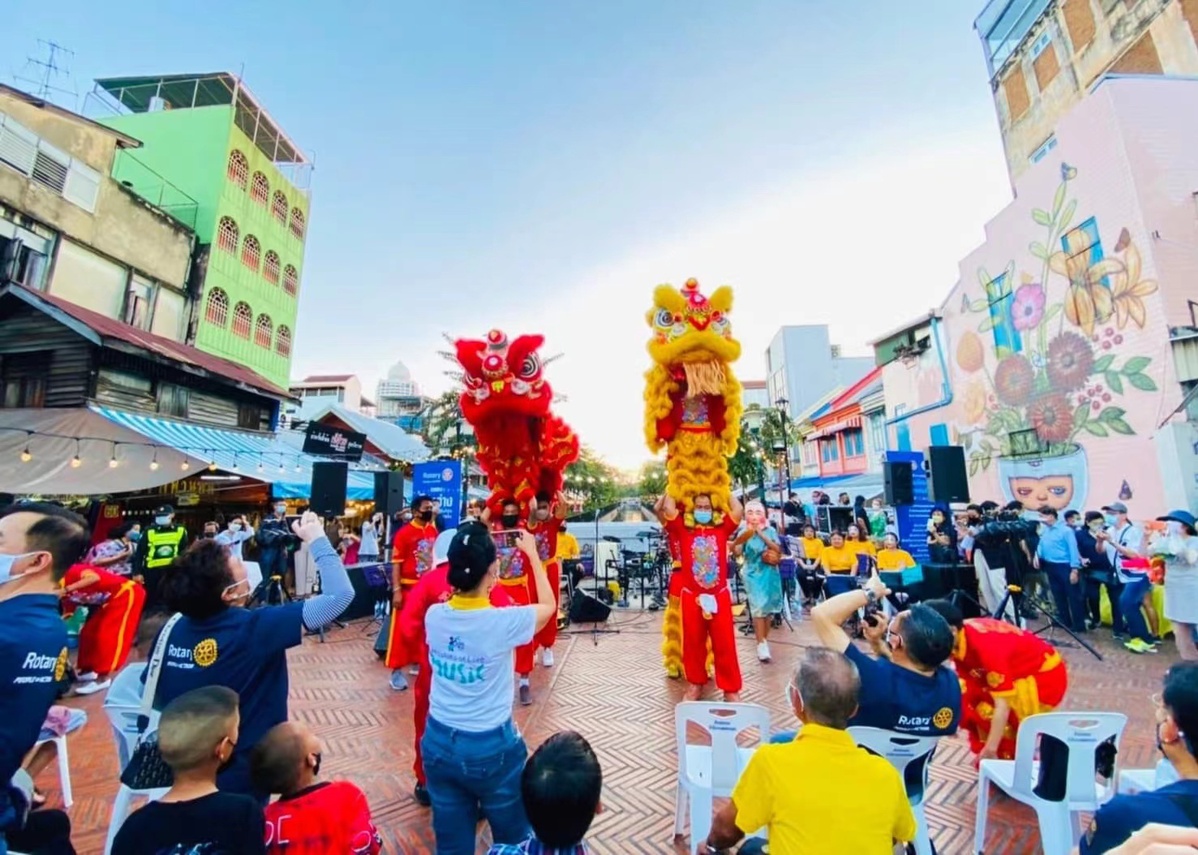Festive travel seen improved in Southeast Asia amid Omicron curbs


Festive travel and holiday activities in Southeast Asia could see some improvement compared to the same period in the past two years, analysts said.
While concerns over the novel coronavirus persist, especially given the emergence of the highly transmissible Omicron variant, moves by governments to ease some of the pandemic curbs could encourage people to make domestic travel plans or opt for staycations during the festive season, they said.
Bing Han Kee, Asia Pacific vice president for sales at travel data and analytics firm ForwardKeys, said people in the region had earlier been leaning toward travel as many countries started to ease the anti-pandemic restrictions, but the Omicron wave prompted a rethink in the plans.
However, the good news for the travel and hospitality sector is that the Lunar New Year in 2022 will be a big improvement, compared to the previous two years, in terms of people celebrating with their loved ones, which will result in increased domestic travel and staycations, Kee said.
Pointing out that the region is only at the beginning of the Omicron wave, Kee noted that most of the Southeast Asian countries that have Lunar New Year public holidays have maintained moderate or even eased the restrictions prudently for the festive period.
Such moves helped spur travel bookings in recent weeks.
For example, when comparing air ticket bookings for this year's Lunar New Year period with that of 2019, ForwardKeys' data, as of Jan 20, showed flight bookings for Malaysia and Vietnam domestic travel have already clawed back to 90 percent and 67 percent of 2019 levels, respectively.
However, domestic travel demand during the same period for other Southeast Asian countries such as Thailand, Indonesia and the Philippines has not been as bullish, and remains significantly behind pre-pandemic levels, said Kee.
Due to the pandemic, especially the Omicron variant, some countries including Thailand and Vietnam have decided to cancel Lunar New Year celebrations.
In Vietnam, where the Lunar New Year is also known as "Tet", the holiday this year will last from Jan 29 to Feb 6.
The country detected its first Omicron community infections on Jan 19. After that, major cities, including Hanoi, cancelled their festive events such as firework displays.
Minh Chu, founder and president of the Restaurant Association of Vietnam, said the government has promoted the awareness of COVID-19 as a key solution of preventing the risk of infection during the holiday.
"We saw there are some predictions by the government that they are concerned that the Omicron (infections) will increase during and after the Tet holiday, but many business owners said they really just want to focus on the short-term target given the current situation," said Chu, noting that 2021 had been a hugely challenging year for the industry.
As Vietnam has opted to "live with" COVID-19, the nation's restaurant business is coming back and growing quickly, with many entities in the casual dining segment saying their business has returned to normalcy, Chu said, citing a survey conducted by the association in January.
In Thailand, for the second year in a row, Lunar New Year events on Feb 1 have been cancelled in Bangkok's Chinatown, one of the biggest of its kind in the world, according to the online newspaper The Nation. The Thai government has declared the Lunar New Year day as a public holiday in 2021.
Thailand boasts a large Chinese community of around 8 million people, accounting for over 12 percent of the country's total population. Many of the Thai Chinese can trace their ancestry back to the southern Chinese provinces and maintain traditions such as the lion dance in celebrating the Chinese New Year.
Thanawan Saengphithak, team leader of the Thailand Seahawks Dragon and Lion Dance Association, said the demand for their performances for the upcoming holiday has almost halved from 2021 due to Omicron.
Thanawan's team has about 30-40 performers --- all have been fully vaccinated. To ensure safety, they also take COVID-19 tests before a show and keep their masks on.
Still, "The demand is less than normal because international tourists cannot come to see my show," said Thanawan.
Thailand has reported some 2.42 million COVID-19 cases since early 2020 with about 22,000 fatalities, official data showed on Jan 28.
The popular tourism destination in Southeast Asia reopened to fully-vaccinated international tourists from 63 countries on Nov 1. The quarantine-free entry program was suspended on Dec 22 over Omicron worries, but will resume from Feb 1.
Intra-regional travel within Southeast Asia during the Lunar New Year season is showing some recovery sparks, ForwardKeys' Kee and the firm's in-house analyst Nancy Dai said in a joint response to queries from China Daily.
The trends are encouraging when comparing the flight bookings during the Lunar New Year holiday against pre-Omicron outbreak levels, with Southeast Asia into Thailand flight bookings peaking at 42 percent. The figures for the Philippines and Singapore are above 80 percent.
"If the (infection) numbers were to come down to a lower level, travel will probably resume much faster," said Kee, hoping the region's sharpened resilience would support the recoveries when the Omicron spikes unfold in the upcoming weeks.

































